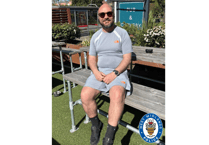Twelve years ago when Alex (pseudonym) started to pursue a medical gender transition, the Welsh gender clinic didn’t exist.
Alex, now in their late 30s, had to travel from the Dyfi Valley to London for NHS treatment, spending “easily thousands” on accommodation due to long days and struggling with travel due to disability.
They said: “I started before the big referral acceleration, the waits were illegally long back then but compared to now they were not too bad.
“Overall I've had a fairly okay time as a trans person, it's been 12 years and I still have two surgeries left.
“Can you imagine how it is for a trans person getting referred now, let alone someone in Wales?”
Accessing healthcare is a concern for everyone living rurally, but what’s it like accessing gender healthcare in rural Wales?
After the controversial Cass review on NHS youth gender services in April and the subsequent ban on puberty blockers (medication which delays puberty) in May, the Cambrian News looked into the experiences of four mid-Wales transgender people to understand what it’s like for them.
Experiences of accessing Welsh gender healthcare contrast hugely - growing up in Wales, there were no services in the country until the Welsh Gender Service opened in Cardiff in 2019.
Before then, gender-questioning people were added to NHS England’s notoriously long waitlist, and once they got to the top, had to travel to attend appointments in London.
For young people, there is still no gender healthcare in Wales, the Cardiff clinic only accepting over 18s.
Despite there being no NHS gender healthcare surgeons in Wales, those who previously lived in England by contrast experience delight over the reduced wait-times compared to the English system.
For Alex, this meant when their London surgeon cancelled this year, they lost over £800 on accommodation.
Though Alex could request moving to the Welsh system, they are “terrified” of losing their place on the waitlist after waiting five years to access top surgery (a procedure that masculinises or feminises the chest), and so far waiting two and a half years for bottom surgery (surgical genital reconstruction).
Alex said what needs to change is politicians allowing patients to make their own decisions: “Let trans people make decisions, assume trans people know what they need, give them lots of information about risk and reversibility, and then let them have treatments without jumping through hoops at great personal financial and emotional expense for years.”
Alex’s concern is now focused on the next generation of gender-questioning young people who may not access care due to the puberty blocker ban and upheaval of England and Wales’ children’s services: "Cis boys with gynaecomastia (breast tissue growth) don't have to wait years for mastectomies, they get them straight away because they're cis (the gender that they know they are matches what other people think their gender should be).
“Children with early-onset (precocious) puberty don't have to wait years for puberty blockers, because their gender isn't in question.
“If a cis girl's ovaries weren't producing enough oestrogen, she'd get prescribed hormones within weeks.
“You can get hormones for menopause, polycystic ovaries or because your testes aren't working properly, but as soon as you're trans you get added to a waitlist that is getting longer faster than patients are being discharged.”
Children accessing gender healthcare in Wales
Any child accessing gender healthcare in Wales is referred to NHS England.
Up until March this year, the only NHS gender service in the UK for under 18s was the Gender Identity and Development Service (GIDS) at NHS’ Tavistock and Portman clinic in London.
Once the world's largest gender identity clinic for children, GIDS waitlist grew along with awareness around LGBTQ+ identities - the last figures from GIDS showed 15,928 people on the waitlist, waiting six years.
In the 2010s GIDS became the focus of arguments over what medical intervention should be given to gender-questioning children.
After the waitlist outgrew GIDS capacity along with criticism of its services it was closed this year, to be replaced with six regional hubs across England including in London, Liverpool, Bristol and East England.
Welsh Government is “considering” a Welsh clinic as part of the new network, with a spokesperson adding: “NHS Wales will continue to commission gender identity services for children and young people from NHS England.
“We are committed to ensuring the development of gender identity services for young people continue to be evidence-led.
“The NHS Wales Joint Commissioning Committee is working with NHS England to consider a Welsh regional centre.”
For puberty blockers, 2021 the Court of Appeal overturned the Tavistock and Portman vs Bell case decision which had caused NHS to suspend new referrals for the medication for under 16s.
The Cass review into gender services for children also did not call for a puberty blockers ban - despite this, puberty blockers were banned by the Conservative government one day before parliament was suspended ahead of the July general election.
Labour’s Health Secretary Wes Streeting said he aimed to make the ban a lasting one, making the only way young people would access them through medical trials.

Some trans young people don’t want to wait
For Cameron, medical intervention couldn’t come soon enough.
“It was the most amazing thing that has ever happened to me,” said Cameron, now 23, on receiving his first testosterone prescription - he had requested a referral to the Welsh Gender Service 16 months earlier.
Growing up in the Midlands, his youth was riddled with fear over what was happening with his body: “I found the thoughts really scary and didn’t understand what was happening, so I just shoved it down.”
On moving to Aberystwyth for university, he found the “diversity, independence and lack of school pressures” freeing and realised transitioning wouldn’t be so bad.
In January 2023 he was offered his first Welsh Gender Service appointment, and in April was prescribed testosterone: “You know when people say the world stops and everything goes in slow motion - I just sat there staring at this piece of paper, thanking my GP over and over again.
“I didn’t get very far out the door before bursting into tears with joy, I phoned my mum and could barely speak to her so she just cheered down the phone.”
He had top surgery in October 2023, completing his medical transition in six months.
Though he had to travel to London for it, he’s thrilled with the treatment he received in Wales compared to his English peers.
But Cameron says if he’d had puberty blockers as a teenager, he wouldn’t have needed surgery: “I was desperately struggling with my period and chest- it was utterly debilitating.
“It impacted my university work badly, I wore binders a lot and spent so much time feeling awful, battling dark thoughts.
“Sometimes my chest dysphoria was so bad I couldn’t shower for weeks.
“As I became more educated on gender dysphoria (the distress someone experiences when there is a mismatch between their gender identity and the gender assigned at birth), I realised how long I’d been experiencing it.
“Proper education is safety - if I’d known what being trans was and that it's ok to explore your gender, I could have gone on puberty blockers.
“I feel robbed knowing I could have avoided the trauma of going through the wrong puberty.”
Cameron says the relationships education he received in school was “shocking”, learning misinformation about periods and nothing about LGBTQ+ identities.
Though the Thatcher-era Section 28 banning the ‘promotion of homosexuality’ was repealed in 2003, it had a chilling effect for years.
New regulations teaching LGBTQ+ subjects in Relationships Education was introduced for the first time in 2019.

Rural life and lack of education stalled Cierra’s transition
Growing up near Caernarfon, Cierra said the lack of education was an issue, describing the closest gender clinic, Cardiff, a five hour train journey away, as a “barrier”: “Growing up in a small rural village, people didn’t get it.
“You have to explain again and again, but growing up I didn’t have much access to understanding this stuff.
“The first time I became aware of transgender identities was on YouTube at 12-years-old.
“Gender dysphoria is with me before I even think of leaving the house, it can be a lot of effort.
“It makes me isolate myself and creates a lot of anxiety, stepping out openly trans is difficult and I’ve faced violence in my hometown and hostility at uni in Aberystwyth.
“If I’d had a better understanding of what was happening earlier I possibly would have wanted to go on puberty blockers.
“From what I’ve read they’re reversible so there shouldn’t be a problem with people being on them.
“Banning puberty blockers won’t stop people becoming trans - it’s something inherent within us.”
Blocked blockers
Despite a lack of regulated education around LGBTQ+ identities, referrals to GIDS shot up over the last ten years - 250 people were referred in 2011/12, compared to 5,000 people were referred in 2021/22.
However the rhetoric around puberty blockers is disproportionate to the number of young people prescribed by GIDS – as of March 2024, less than 100 people under 18 in the UK had an NHS prescription.
Like all UK medical treatments, puberty blockers have been tested and meet strict safety and quality standards, having been used for decades for intersex people and early-onset puberty.
Medical testing into the effects of puberty blockers has mostly been focused on young people who are cis-gender (such as for precocious puberty), with less testing on gender-questioning young people, leading some to call its use in gender clinics “experimental”.
However studies have found that access to puberty blockers for trans young people has reduced the risk of suicide, depression and self-harm.
Cameron adds: “The Cass review didn’t highlight the negative impact of not being able to access this care, such as DIY hormone therapy bought on the black market, unsafe binding with duct tape, bandages or corsets, or the fact that puberty blockers are still available for cis kids.
“The regret rates for transgender treatment are also incredibly low compared to other surgeries on joints, cosmetic surgery, tattoos, piercings.”
He cites a US study of 92,000 trans people in which 98 per cent felt more satisfied with their life after accessing hormone therapy.

Some trans people don’t want puberty blockers
Lori Darling, 23 from Cardigan, is “glad” she didn’t take puberty blockers as a teenager: “I’ve been on blockers and hormones for five years and the effects are amazing, but I’m glad I got them as an adult.
"I don’t want to be infertile - which is another benefit to not medically transitioning as a child.
“They were telling kids they need blockers to survive then took them away, and those are the kids I'm worried about.
"I believe the only way forward is to teach kids they’re beautiful how they are, and growing up trans is beautiful.
"Having a deep voice as a woman is cool. Being tall is awesome. You shouldn’t have to look cis to be accepted...
“I don’t want this to be an anti-puberty blockers piece, I know every case is unique and I’m not a doctor, I’m just a trans woman with a tiara who wants to give hope to trans kids and their families who have had this taken away.
“There are surgeries and lasers that can undo the effects of puberty you don’t like, but in ten years when you’re thinking about starting a family you could see this as a good thing.”
Lori was told puberty blockers would be “life-saving” and according to the Good Law Project research, they can be.
In the seven years before the High Court decision in the Tavistock vs Bell case, there was one recorded death of a young person on the waitlist for GIDS.
In the three years since, there were 16 deaths.
The Good Law Project, the legal group who in July lost the case arguing the puberty blockers ban was unlawful, said they would continue to fight for trans rights: “This ban closes off the only route to treatment left open by the restrictions on treatment in the NHS.
“[The Conservative Health Secretary’s] shockingly callous decision is likely to lead to further deaths of young trans people.
“We have received many emails from desperately worried parents.”





Comments
This article has no comments yet. Be the first to leave a comment.